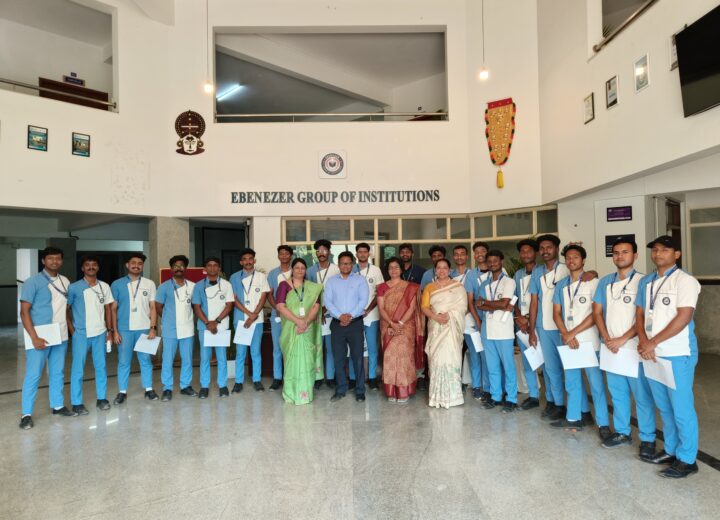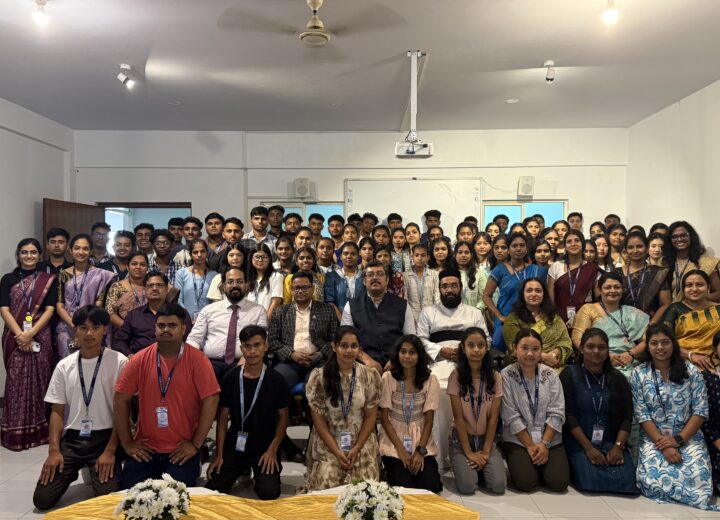
What is Skill-Based Learning?
Skill-based learning is more than just a trend—it’s the future of education. It emphasizes the acquisition of practical, job-ready skills over rote memorization and theoretical knowledge. Whether it’s learning how to write clean code, operate advanced machinery, communicate
effectively, or manage a team, skill-based education prepares students for real-world scenarios. It’s focused, hands-on, and tailored to the demands of specific industries.
Unlike traditional learning methods that prioritize academic achievements and grades, skill-based learning highlights a learner’s ability to apply knowledge in practical environments. This shift is especially crucial in an economy where employers are increasingly favoring candidates who can hit the ground running without needing extensive training.
At Ebenezer Group of Institutions, the focus on experiential learning ensures students are not just book-smart but also career-ready. The curriculum is often integrated with workshops, internships, and projects that mimic actual job roles, ensuring students build confidence alongside competence.
Why Traditional Education Alone is No Longer Enough
The world is moving fast—faster than our traditional education system can often keep up with. A degree, once a golden ticket to a successful career, is now just a starting point. With technology advancing rapidly and job requirements evolving continuously, there’s a noticeable gap between what students learn in schools and what they actually need in the workplace.
Employers today aren’t just looking for qualifications on paper. They’re after critical thinkers, problem-solvers, and individuals who can adapt to changing environments. Unfortunately, many degree programs still focus more on theoretical knowledge than practical application.
According to research from the World Economic Forum, over 50% of employees will need reskilling by 2025. That’s a wake-up call! Ebenezer Group of Institutions stepped up to the plate by embedding skill-based modules in their curriculum, allowing students to graduate with more than just a diploma, they graduate with employable skills.
Evolution of the Job Market
Shifting Demands in the Employment Sector
A decade ago, employers were happy to hire candidates with degrees and train them on the job. But today, the landscape is entirely different. Employers now want graduates who come equipped with relevant skills from day one. This shift is driven by economic changes, globalization, and the breakneck speed of technological innovation.
Industries are evolving, and with that, the expectations from job seekers are too. Fields like data science, digital marketing, cloud computing, and AI weren’t even mainstream a few years back. Now, they dominate job portals. Unfortunately, most traditional academic programs haven’t kept pace with this transformation.
Today, demand leans heavily towards individuals who possess a blend of hard and soft skills—people who not only know the theory but can also troubleshoot, manage deadlines, communicate effectively, and work collaboratively. That’s exactly where skill-based learning
shines.
Rise of Automation and AI in Jobs
Another major disruptor? Automation and artificial intelligence (AI). These technologies are changing the very nature of work. Routine and repetitive jobs are being automated, making many traditional roles obsolete. However, this also creates a huge opportunity for those with the right skills.
According to a recent McKinsey report, up to 375 million workers worldwide may need to switch occupational categories by 2030 due to automation. That’s massive! The silver lining is that while machines are taking over repetitive tasks, they are also creating a demand for new roles—roles that require creativity, emotional intelligence, technical know-how, and problem-solving.
Ebenezer Group of Institutions is already ahead of the curve, offering courses that include AI, machine learning, and digital tools focused on emerging tech ensures students are not left behind in this fast-paced digital age.
Real-World Applications of Skills
Skills are only as valuable as their usability in real scenarios. One of the biggest strengths of skill-based learning is its direct application in the workplace. Whether it’s coding, writing, designing, or analyzing data—these aren’t just classroom tasks, they are daily responsibilities in real jobs.
When students experience real-world tasks during their education, they build confidence. They also understand work ethics, time management, and professional behavior—all of which are crucial for career success.
At Ebenezer Group of Institutions, students are encouraged to participate in internships, collaborative projects with industries, and workshops led by experts. These practical experiences prepare them to transition smoothly into the workforce with minimal adjustment.




